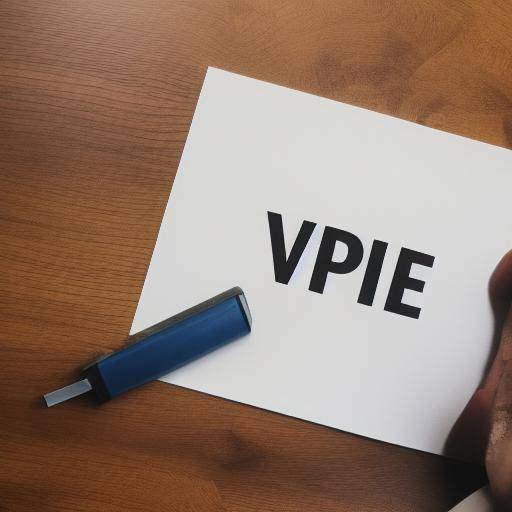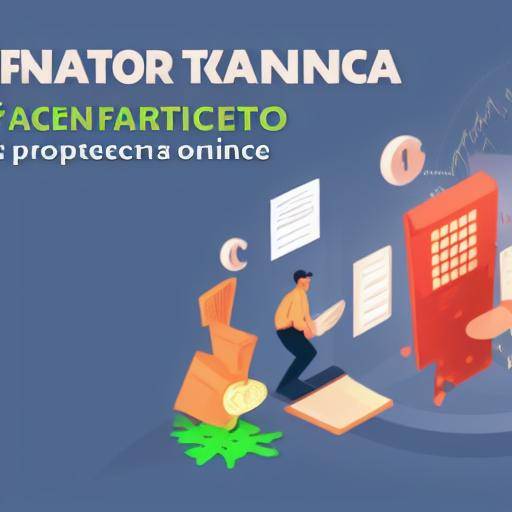
Introduction
With regard to personal finance, uncertainty can be overwhelming. Whether you face an unexpected crisis, such as job loss or a medical emergency, or simply seek to reduce financial stress, having a solid emergency fund can make a difference. In this article, we will explore effective strategies to create financial support that provides security and control in times of economic instability. From its history and relevance to practical advice and future forecasts, this content will provide an exhaustive guide to build a solid emergency fund.
Backup: The Emergency Fund Base
Subject matter
Financial backing, also known as an emergency fund, is crucial to facing unforeseen. Having a solid backing provides tranquility and avoids getting in debt at critical times.
Strategies for Creating an Emergency Fund
- Constant Saving: Set a fixed percentage of your monthly income for the emergency fund.
- Automation: Setting automatic transfers to a separate account.
- Realist Budget: Adjust the budget to allocate more funds to support.
Practical Tips
- Determine an objective amount based on average monthly expenses.
- Choose a savings account with high liquidity and easy access.
- Review and update the emergency fund on a regular basis of changes in the financial situation.
Benefits of Backup
- Provides financial security at times of adversity.
- It allows to face unexpected expenses without borrowing.
- It reduces stress and anxiety associated with financial uncertainty.
Case study: The 2008 Global Economic Crisis
During the financial crisis of 2008, those with well-established emergency funds managed to mitigate the impact of the recession, demonstrating the importance of backing in turbulent periods.
Security: Protecting Your Financial Future
Avoid Financial Vulnerability
Financial security goes beyond the accumulation of savings. It implies the protection of assets and the prevention of situations that can negatively impact economic stability.
Strategies to Guarantee Financial Security
- Life and Health Insurance: Hire policies covering unforeseen events.
- Investment diversification: Spread the assets in different investment classes.
- Patrimonial Planning: Establish a will and trusts to protect the heritage.
Risk Protection
- Identify and mitigate potential risks that could compromise financial security and the emergency fund.
The Importance of Life Insurance
A proper life insurance provides tranquility by knowing that loved ones will be financially protected in the event of death.
Control: Efficient Management of Your Finance
Financial Empowerment through Control
Financial control is essential to optimize resource management and maximize the potential for personal economic growth.
Tools for Effective Financial Control
- Detailed budget: Income tracking and expenditure to identify areas of improvement.
- Debt reduction: Strategies to settle debts and avoid cumulative interests.
- Financial education: Solid knowledge about financial management and investment options.
Automation and Simplification
- Use digital tools for automated finance management.
- Simplify investments and transactions for better control and visibility.
Perspective to Long Term
Financial control is not only about managing the present, but also planning for the future. Smart investment and heritage planning are inherently related to long-term financial control, ensuring stability and growth in the future.
Conclusion
Creating a solid emergency fund is critical to reducing financial stress and providing security in times of uncertainty. Support, security and control are intertwined to provide a solid financial base that allows unforeseen confrontation and planning the future with confidence. By implementing strategies such as constant savings, asset protection and efficient resource management, it is possible to build a financial mattress that provides peace and stability.
Initiating this trip to financial security can be your best long-term investment!
Frequently asked questions
**1. How much money should I have in my emergency fund?**A good starting point is to have between 3 to 6 months of monthly expenses in your emergency fund. However, this can vary according to personal situation and job stability.
**2. What risks should my life insurance cover?**Ideally, life insurance must cover funeral expenses, outstanding debts and provide financial support for beneficiaries.
**3. Should I include high-risk investments in my emergency fund?**No, the emergency fund should prioritize liquidity and stability. High-risk investments can compromise their purpose of providing immediate backing in critical situations.
**4. How can I simplify my budget?**The use of financial management applications can simplify income and expenditure tracking. Automating recurring payments can also simplify daily financial management.
**5. When should I review and update my emergency fund?**It is advisable to review and update your emergency fund at least once a year, and whenever you experience significant changes in your financial situation, such as a new job or an increase in monthly expenses.
**6. What is the difference between a will and a trust?**While a will specifies how your assets will be distributed after your death, a trust manages and protects your assets during and after your life, providing additional control over inheritance distribution.
In short, developing a solid emergency fund is a smart way to take control of your finances and protect your financial future. By prioritizing backup, security and control, you can confidently face unexpected financial challenges and work towards a more stable future.
With these strategies, you will be on the way to greater stability and financial tranquility, ensuring a better future for you and your loved ones!






















































